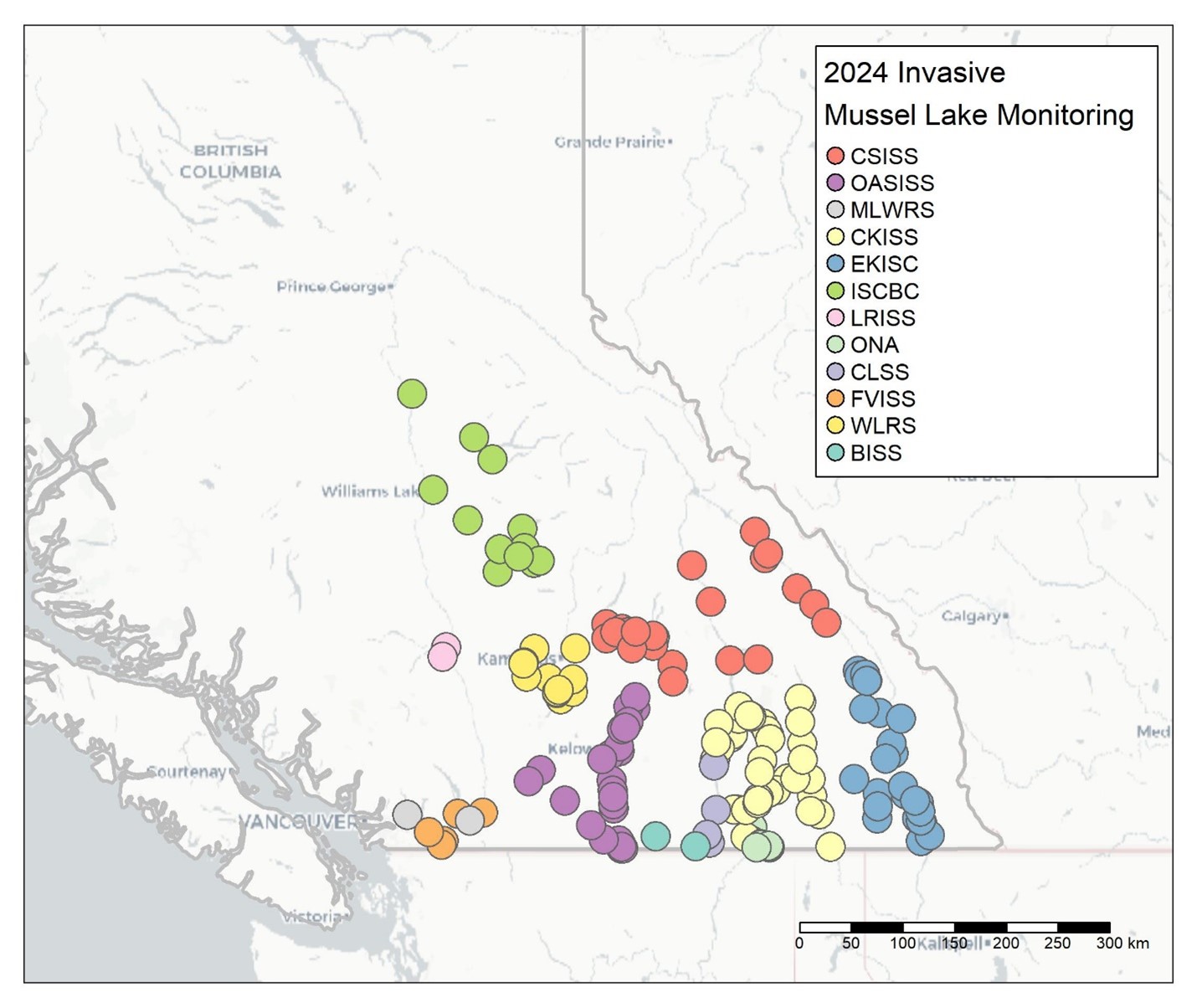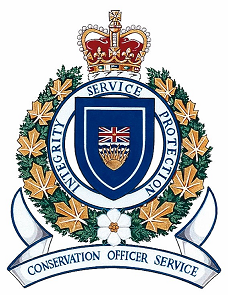Early detection lake monitoring
On this page
Monitoring
Monitoring is critical for early detection of new invasive species incursions in B.C. and is an important first step in the Provincial Early Detection Rapid Response (EDRR) Plan (PDF, 3.1MB). Zebra (Dreissena polymorpha), quagga (Dreissena rostriformis bugensis) and golden mussels (Limnoperna fortunei) collectively referred to as invasive mussels, are freshwater aquatic invasive species that are not currently found in B.C. but pose significant environmental and economic risks if they were to be introduced.
The B.C. government has been conducting lake monitoring for invasive mussels since 2011. B.C. is one of the many jurisdictions across North America conducting monitoring and active prevention efforts for invasive mussels.
Field protocol
The 2025 British Columbia Invasive Mussel Lake Monitoring Field Protocol (PDF, 1.8) details the provincial protocols used for early detection lake monitoring for invasive mussels. The protocol outlines provincial standards for the collection and preservation of water samples which are then analyzed by a designated lab for the presence of invasive mussel larvae.
Grant program
In February 2018 the Habitat Conservation Trust Foundation (HCTF) announced a grant program in partnership with the B.C. government. The granting program is designed to fund community efforts to monitor lakes in B.C. (using the provincial protocol above) for the presence of invasive freshwater mussels. All sampling is conducted following the provincial lake monitoring field protocol and samples are sent to a designated lab for analysis.
For the 2024 season, sampling was carried out by both partner organizations and B.C. government staff from early June to September. A total of 10 grants were administered by the Habitat Conservation Trust Foundation with funding provided by the B.C. government and Fisheries and Oceans Canada (DFO) for the collection of water samples in priority waterbodies across the province.
The grant recipients were:
- Boundary Invasive Species Society (BISS)
- Central Kootenay Invasive Species Society (CKISS)
- Christina Lake Stewardship Society (CLSS)
- Columbia-Shuswap Invasive Species Society (CSISS)
- East Kootenay Invasive Species Council (EKISC)
- Fraser Valley Invasive Species Society (FVISS)
- Invasive Species Council of British Columbia (ISCBC)
- Lillooet Regional Invasive Species Society (LRISS)
- Okanagan and Similkameen Invasive Species Society (OASISS)
- Okanagan Nation Alliance (ONA)
A total of 869 water samples were collected from 87 priority waterbodies throughout B.C. All samples tested negative for invasive mussels.
2024 Monitoring map
Lake monitoring for invasive mussels was performed by 10 organizations, plus provincial government staff. The participating groups for 2024 are located in the map below.


